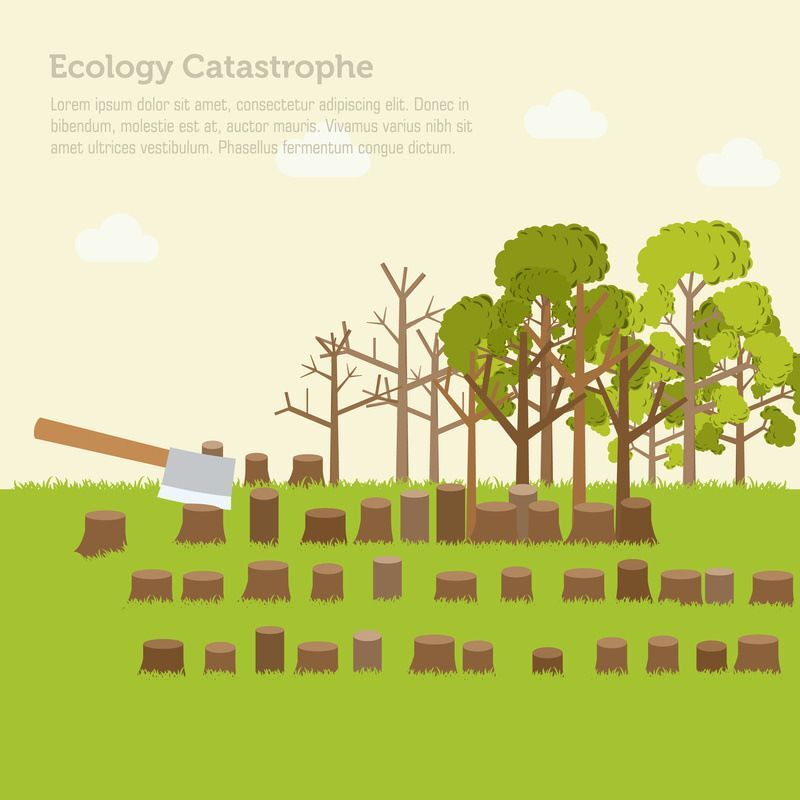← Go back Next page →
© Burlaka Alexey | Dreamstime.com - Issue deforestation illustration design background
What exactly does "zero deforestation" mean? In an article published in the journal Science, authors c, of Winrock International, and Dr. Daniel Zarin, of the Climate and Land Use Alliance, posit that, while the idea seems simple and compelling, ambiguity surrounding global definitions and metrics actually creates
Over the past several years, governments, corporations, and non-governmental organizations have paid significant attention to efforts to reduce tropical deforestation, setting goals and targets for the achievement of zero deforestation. These targets, and the global discussions which precede them, are well-meaning and imperative. In fact, when it comes to mitigating the effects of climate change, the role played by reducing emissions from deforestation and forest degradation (REDD+) has received considerable attention. However, as Brown and Zarin point out, some of these global targets specify "net deforestation," some "gross deforestation," some do not specify at all, and others may actually use these terms interchangeably. This confusion over terms that each have their own meanings could lead to some perverse outcomes, they write.
"Until targets are clarified, and metrics agreed upon, zero may mean nothing at all," say authors Sandra Brown, chief scientist with Winrock's Ecosystem Services, and Dan Zarin, program director of the Climate and Land Use Alliance.
In their paper, Brown and Zarin further conclude that reducing gross deforestation will usually result in better outcomes "if the intent is to reduce carbon emissions, conserve biodiversity, and protect hydrological services" because net deforestation targets are often ambiguous in these areas. This points out the importance of clear targets, as well as a consensus on metrics, if, in the end, the goal is to be rendered achievable. Rather than a global target for zero deforestation, "governments, corporations, and nongovernmental organizations should instead set separate, ambitious targets for reductions in gross deforestation and for reforestation," write Brown and Zarin.
"Monitoring gross changes in forest cover -- both losses and gains -- is now not a technical challenge because there are many satellite data providers to choose from, robust methods for imagery interpretation, and increased computing power; what is needed is the global commitment to allocate the resources to get the job done," says Brown.
See additional sources at:

